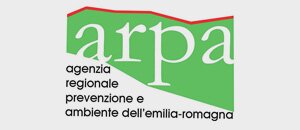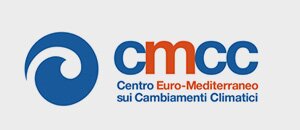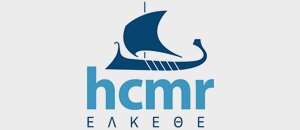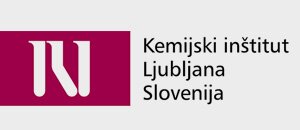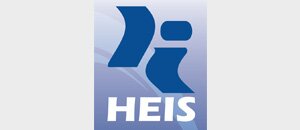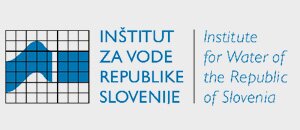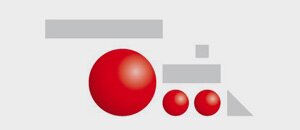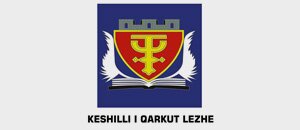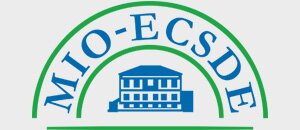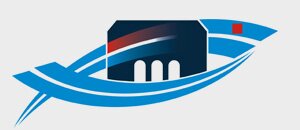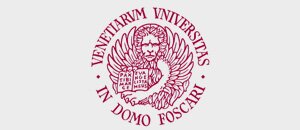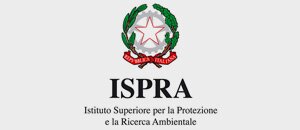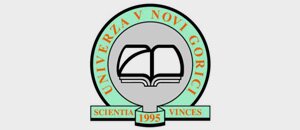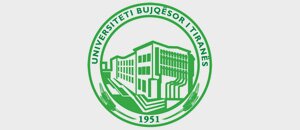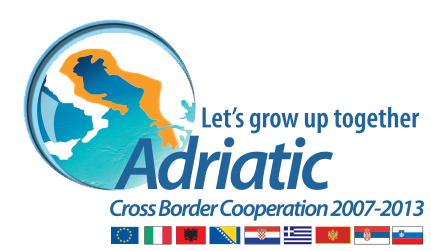
Chioggia is one of the most important Italian fishing harbors and many people are involved in fishing activities. However, the consciousness about marine litter-related problems is low (source, effects, etc.), which instigated the DeFishGear team of ISPRA to organise a Course on Marine Litter for students of the Primary School ‘M. Merlin’ of Chioggia.
Implementation of the Course started in March 2015. The first three parts took place in the period March-June 2015, as described under DeFishGear Educates Children about Marine Litter, while the last part was organised at the beginning of July.
On the 3rd of July, a parade for students of the primary school “M. Merlin”, was organised at the beach “Bagni Lungomare”. All students participating in the activity were wearing the DeFishGear T-shirt with the “Message in a bottle: Save Our Seas” logo designed by themselves at the end of the marine litter course.
As children prepared different billboards, during this event, the first one was fixed to one of the lifeguard towers located at the Chioggia beach. The remaining billboards were fixed to 20 different lifeguard towers over the next several days. Many tourists visit these beaches, therefore the billboards will not only raise awareness of the local people, but of many visitors who come to spend their holidays at these beaches. Thus, the impact of this activity will have much larger scale than the local community.
The event was attended by the Assessor for the Environment of the Municipality of Chioggia and the President of the non-profit organization “Le Tegnùe di Chioggia”, who rewarded the children with a picture book about the Tegnùe.
The activities continued on the 4th of July, when a singing performance was organised at the public square Piazza Europa in Chioggia. Before the performance, ISPRA researcher spoke about the DeFishGear project, focusing on the marine litter course and Fishing for Litter activity (FFL). Three fishermen involved in the Fishing for Litter activity also spoke about their experiences on the project, stressing the importance of FFL and the need for this activity to continue in the future and to involve the entire Chioggia’s fleet.
The president of the non-profit organization "Tegnùe di Chioggia" donated books about the Tegnùe, to thank the fishermen for their efforts in cleaning the Adriatic Sea and preserve the Tegnùe's habitat. Teachers presented the work done with their students, together with ISPRA.
At the end of the performance, citizens and tourists were invited to go on the beaches and look for the billboards about marine litter on the lifeguard towers.

The Conference on Sub-Regional Cooperation in Marine Litter Management in Adriatic-Ionian Macro Region was carried out on March 25th in Split, Croatia.
The objective of the Conference was to contribute to sub-regional cooperation in addressing Marine Litter issue, which is also the main request of the European Commission in its guidance for the next phase of the MSFD implementation.
Therefore, the focus was:
- sub-regional cooperation in preparation of the MSFD Program of measures / Revision of LSB NAPs with integrated ML measures / considerations;
- discussion and elaboration of the measure dealing with identification of ML hot spots in Adriatic-Ionian sub-region as well as discussion and identification of proven ML management models with potential for cross-border transfer/replication;
- main barriers to more effective tackling of ML issue;
- underexploited opportunities for highly effective measures;
- ideas for follow-up of sub-regional projects dealing with these barriers and opportunities.
Following attachments are available for the download:
Split ML 25 March 2015 Conference Conclusions
1. Defishgear Project - general info with focus on cap and sust component
2. Defishgear Project - WP4 ML monitoring
3. Defishgear Project - WP5 microplastics monitoring
4. Defishgear Project - WP6 DFG management
5a. Costs of Marine Litter management
5b. UNEP MAP MLRP requirements and implementation
6. RMO ML within MSFD framework - current status and recommendations
7. IRMO Adriatic NGOs and LAs ML Survey Results
8. IRMO Adriatic competent authorities - ML Survey Results
9. NGO Sunce CRO ML experiences
10. NGO MEDASSET GR ML experiences
11. NGO MIO ECSDE GR ML experiences
12. NGO Legambiente IT ML experiences

Within the framework of the IPA Adriatic funded DeFishGear project, MIO-ECSDE carried out the third set of beach litter surveys in Thesprotia, Greece, 28-30 July 2015. The previous sets of surveys took place in winter (November 2014) and spring (March 2015). Based on the beach monitoring methodology prepared by MIO-ECSDE in collaboration with other DeFishGear partners, six sites were selected taking into consideration their location (vicinity to ports, river mouths, tourist destinations, coastal urban areas, remote areas) and other features related to morphology, accessibility, etc.
The sites – located at Valtos (Parga), Arrila beach (Perdika), Mega Ammos (Syvota), Drepano (Igoumenitsa), Kalamas estuary and Sagiada beach – were also chosen based on the input received by the Management Body of Kalamas – Acherontas Rivers, who also granted the MIO-ECSDE team with the necessary permission to perform the surveys in three locations within the protected area.
The results of the one-year-long beach litter surveys will contribute to the identification of risks in the area related to litter that ends up in the marine environment originating from different on- and off-shore human activities (e.g. inadequate urban solid waste management at all stages, discharge of untreated municipal sewage, commercial fishing, etc.) and subsequently facilitate the work of the Management Body, as well as of the local authorities to identify prevention and mitigation actions to tackle marine litter.
The results of the pilot ‘monitoring’ activity on amounts, composition and potential impacts of marine litter are expected to be published by the beginning of 2016.
It should be noted that MIO-ECSDE and Accademia del Leviatano have undertaken floating litter surveys in the area, while the other Greek DeFishGear partner, the Hellenic Centre for Marine Research, is carrying out marine litter monitoring activities on beaches, seafloor and biota in the area of Corfu.
For more info contact: Thomais Vlachogianni, MIO-ECSDE Programme Officer, vlachogianni(at)mio-ecsde.org

One thing that certainly distinguishes the DeFishGear project from the others is the constant quest for the new and innovative ways for project promotion in order to anchor direct and permanent bonding with its stakeholders and other similar initiatives in the Adriatic Region.
Two Italian DeFishGear partners (ISPRA and Ca’ Foscari University of Venice) and well known Italian environmental NGO “Legambiente” united their forces in efficient tackling of marine litter and micro-plastic pollution through the campaign named “Don’t Waste Venice”, organized under the umbrella of the DeFishGear project.
“Don’t Waste Venice” is a floating litter monitoring campaign of Venice canals which has been launched in June 2015. Innovative touch has been given to the aforesaid campaign through the organization of the press conference on Legambiente’s schooner Goletta Verde back to back with the monitoring of floating litter in S. Mark’s Basin, one of the most important stops of the Legambiente annual monitoring campaign of the sea quality in Italian seas.
Upon this occasion, Don’t Waste Venice initiative and results of the Goletta Verde 2014 Sea Monitoring Campaign in the Adriatic and Mediterranean Sea were presented in a nut shell by Mr. Luigi Lazzaro and Ms. Serena Carpentieri, Legambiente Veneto president and Goletta Verde campaign responsible.
Mr. Tomaso Fortibuoni and Mr. Giulio Pojana, representatives of the two Italian DeFishGear partners (ISPRA and Ca’ Foscari University of Venice) presented in short the basics of micro-plastic pollution and its dynamics into the sea and showcased rather impressive preliminary results of the Don’t Waste Venice initiative and Seafloor Litter Monitoring Campaign performed in Italy in 2014.
Thus, preliminary monitoring results of the Don’t Waste Venice campaign boil down to more than 500 floating objects monitored and collected along 7 km (on average 1 floating litter object each 13 meters) in only one day. 87% of the waste material collected was plastic waste (plastic liquid containers represented more than 25%, plastic/polystyrene fragments 16%, packaging parts 12% and etc.). Cigarette buds and packs, as well as lighters represented about 9% of the objects found, and both full and empty garbage bags of garbage contributed with 6%.
On the other hand, Seafloor Litter Monitoring Campaign, based on 16 hauls in an area of approximately 5.000 km2, showed an average density of approximately 720 items per km2, and a density by weight of 100 kg per km2. Litter objects at the sea bottom in a nut shell were composed of plastic (92%), rubber (3%), metal, (3%) and textile (2%).

Even though Chioggia is one of the most important Italian fishing harbors and fishing had been running through it veins from ancient times, the consciousness about marine litter related problems is still low (sources, effects, etc.).
However, DeFishGear project, which strives to make the difference when it comes to tackling marine litter issue in the Adriatic, is continuously focusing its efforts to progressively build society which would be conscious and sensitive to marine litter sources and its impact on marine environment.
With regard to that, a new pearl to already long necklace of public awareness activities already performed within the DeFishGear project has been added by ISPRA, Italian project partner.
This new activity named “Fishermen stories for children about fishing for … litter?!” aimed to promote appropriate behaviors in students and their relatives in order to reduce marine litter, and to foster the Fishing for Litter pilot activity by establishing strong connection among children and fishermen.
The event has been carefully prepared and implemented in various stages, and it turned out to be a real success. The first stage consisted of theoretical and practical course on marine litter issue held by ISPRA experts at the primary school ‘M. Merlin’ in Chioggia.
The second stage of the event consisted of meeting the fishermen involved in the Fishing for Litter activity within the DeFishGear project. The students have been accompanied by their teachers and parents to the commercial harbor of Chioggia, where the marine litter and derelict fishing gear collection point was set.
A special welcome desk (with a festoon built with 45 DFG colored logos and marine litter poster exhibition prepared by the students) together with the fishing nets, DFG leaflets, and DFG aluminum water bottles with the message “Less plastic bottles - More marine life” filled with cold water awaited participants of the event.
Encounter between fishermen and children begun with the arrival of the five fishing boats from the sea with their crews (and family too!). The fishermen disposed marine litter collected, in order to show how the pilot action is working and how much marine litter they (unfortunately) collect every day. Children were very excited and spoke a lot with fishermen.
DeFishGear project and Fishing for Litter activity has been showcased by ISPRA representatives while the Chief Harbor Master, the Assessor for the Environment of the Municipality of Chioggia, and Veritas spa (Public Utility Company in charge of litter management) representatives warmly welcomed and addressed the event participants.
Definitely the highlights of the event were two songs about fishermen and marine litter, especially composed for the event and sung by children. Newly acquainted friendship between fishermen and children has been confirmed with a diploma of the “Guardian of the Sea” awarded to each fisherman involved in the Fishing for Litter activity by the children.
Finally, two posters drawn by the students were selected to become the “inspirational drawings” for the newly designed DeFishGear T-shirts.

During the months of May and June 2015, the DeFishGear team of the Institute of Oceanography and Fisheries from Split, organised "Marine Litter Workshops" for preschool, as well as elementary school children. Both workshops were organised within the project "Civic Engagement in Responsible Waste Management on the Island of Vis". The workshop for the preschool children took place on a family farm, while the one for the school children was organised in the Elementary School "Vis".
The workshop for the preschool children included presentation of posters that explained negative effects of marine litter on animals in ecosystem, but also the negative effects on humans. Children were explained how they can contribute to the reduction of waste and environmental protection. The most important message of the workshop was that waste does not necessarily have to end up in trash, but that it can be recycled and reused. Many experiments were also part of the workshop, in which children had different tasks that directly involved them in solving of waste problems, and contributed to their better learning experience.
The school children workshop was organised for two different age groups (1st to 4th and 5th to 8th grade). Marine litter issues were explained to both groups, showing different scenarios and fate of waste after it reaches the sea, as well as its sources in the marine ecosystem. Emphasis was given to the negative effects of marine litter on tourism, fisheries, wildlife, and consequently on human health. This workshop also included a practical part in which children had the opportunity to get directly involved in finding solutions to marine litter problems.
Both workshops also included a short presentation of the role and importance of DeFishGear project in solving of marine litter problems.
For more information about the workshops, please contact Ms Jasna Siljic via e-mail: This email address is being protected from spambots. You need JavaScript enabled to view it.

On 25th June 2015, the DeFishGear project team members from the Institute of Oceanography and Fisheries presented the DeFishGear project within the training course which offers an introduction to practical aspects of multidisciplinary oceanographic research at sea, and educates students in oceanographic sampling and data analysis related to marine physics, chemistry, biology and fisheries, organised in the scope of EUROFLEETS 2.
The presentation took place during the field campaign in the coastal central Adriatic Sea, and it was attended by twelve postgraduate and graduate students from all over Europe (Turkey, Italy, Denmark, Spain, Croatia, Ireland, UK, Portugal, Slovenia, Malta, Netherlands). Along with lectures, they had an exercise in the monitoring of sea surface and seafloor using the proposed DeFishGear methodology.
For more details, please contact Mr Pero Tutman: This email address is being protected from spambots. You need JavaScript enabled to view it. .

The DeFishGear partner University of Nova Gorica, which this year celebrates its 20th anniversary, organised the International DeFishGear Summer School. This two-week long event took place from 11 to 24 June 2015, and it was attended by Master and PhD students from across the Adriatic countries, who will have future research and professional interests in the field of marine litter pollution and other related environmental issues.
Participants had the opportunity to intensively interact with an international team of distinguished experts in the field of marine environmental sciences, as well as to present and discuss their study and research interests. The Summer School comprised a balanced mix of intensive lectures, hands-on laboratory, field excursion and moderated discussions. Lectures covered the topics such as plastic waste sources, different issues related to macro-litter, microplastics and nanoplastics, best practices in combating marine litter etc.
The field excursion that was realised as an integral part of the Summer School took place in Debeli Rtič, when the students had the opportunity to practically implement the beach litter monitoring and sediment sampling.
For more detailed information about the school please visit the Summer School Website, or contact Ms Marina Artico via This email address is being protected from spambots. You need JavaScript enabled to view it. .

We are pleased to announce that the MICRO 2016 Conference under the title "Fate and Impact of Microplastics in Marine Ecosystems: From the Coastline to the Open Sea", will take place in Lanzarote, Spain, from 25 to 27 May 2016.
MICRO 2016 will be the opportunity to share available knowledge, fill in gaps, identify questions and research needs, and develop commitments to operationalise solutions.
Participants are invited to submit abstracts for oral or poster presentations on the following topics:
- From macro- to microplastics: Weathering and fragmentation processes
- From source to sink: Occurrence and distribution of microplastics in fresh water bodies, coastal zones and the open ocean
- Impacts of microplastics on marine life
- Microplastics as vectors of biological and chemical contaminants
- Socioeconomic impacts of microplastics
- Citizen science, outreach, education and communication
- Solutions and next steps
Deadline for submission of abstracts is: 15 January 2016.
For more information about the conference, please visit the MICRO 2016 website

On the 12th of June 2015, the DeFishGear project partners of the Institute of Oceanography and Fisheries from Split, organized a working meeting on the implementation of the DeFishGear project activities in the scope of Work Package 6 (WP6). The meeting was organised in the City Hall of Hvar, in the vicinity of the selected fishing port Vira. It was attended by the representatives of the Public Institution for Coordination and Development of Split Dalmatia County - RERA, also the DeFishGear project partner, and by the representatives of the City of Hvar, Nautical Centre, Fishing Association and Utility Company of Hvar.
The purpose of the meeting was for all stakeholders to become more familiar with the general information about the project, its progress, as well as planned and realized activities in all work packages, but with the particular focus on WP6 activities. Details of the project objectives and activities implemented so far were presented by Mr Pero Tutman, who specifically stressed the need for involvement of all stakeholders. He pointed out the importance of the marine litter problem, and its direct negative impact, not only on fishing, but also on tourism as a dominant activity in these areas.
Mr Mišo Pavičić additionally elaborated the activities implemented within WP6 and presented the current results of the pilot actions. He focused on the information about the quantity and composition of litter collected and also presented the financial report detailing planned and spent resources provided for activities in the fishing port Vira.
This was followed by the discussion with the participants about the progress of the project activities, and some proposals for the improved tackling of marine litter issues were also provided. The conclusion of the meeting was that it is particularly important to continue with the activities of collection and disposal of marine litter and derelict fishing gear after the project ends. Also, there is a need to expand certain activities, as well as to improve the existing ones.
It was emphasized that, in order to ensure uninterrupted continuation of activities in the future, specific sources of financing should be provided. Additionally, if the system is to function properly, it is necessary to find ways to further stimulate the fishermen, as the key stakeholders. The need to set up additional containers and tanks for waste oils, oily filters and oily rags was also expressed by some of the stakeholders.
The participants pointed out that the DeFishGear project succeeded in something very important - to connect stakeholders at different levels, as the first step in establishing a regulated system for collection, disposal and possible recycling of marine litter. The good cooperation is expected to continue, within the DeFishGear project, but also within the future projects.
For more details about the meeting, please feel free to contact Mr Pero Tutman via This email address is being protected from spambots. You need JavaScript enabled to view it.






